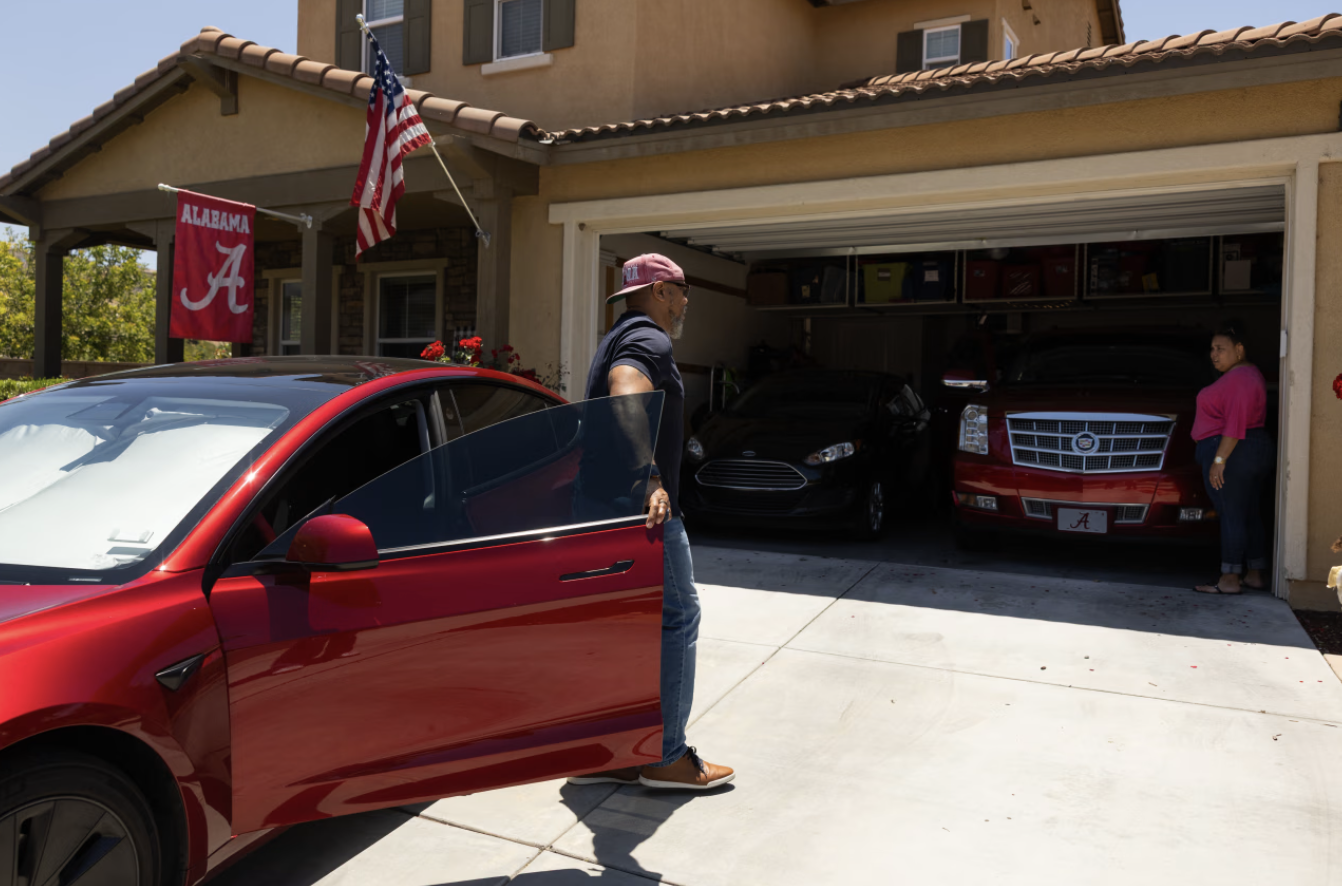47-year-old Lauren Fichter, residing in Reading, Pennsylvania, and her husband own a house and a rental property. However, as their eldest son, Dalton, prepares for college, he's been left to secure scholarships and student loans. The couple hasn't saved enough to cover the potential $75,000 annual tuition.
"In my younger years, I wouldn't have dared to dream of earning this much, but now, I feel like we're just a regular middle-class family," Fichter said.
 |
Rising living expenses and tuition fees leave many American families, even those in the top 10% income bracket, financially insecure. Illustration: Jessica Ruiz/WSJ |
Rising living expenses and tuition fees leave many American families, even those in the top 10% income bracket, financially insecure. Illustration: Jessica Ruiz/WSJ
Surveys and studies on American income and living standards place the Fichter family among the top 10% of earners (over $250,000 per year). While this figure may seem substantial, many families in this bracket don't feel wealthy. This financial insecurity stems from the soaring costs of housing, college tuition, insurance, and loans over the years, putting pressure even on high earners.
Owning valuable properties doesn't necessarily equate to security, especially with companies frequently laying off employees and guaranteed pensions becoming increasingly rare.
In 2023, after 15 years as a stay-at-home mom, Fichter returned to work to contribute to her son's college fund, but the additional income hasn't been enough.
Despite living in a relatively affordable housing market, other expenses remain burdensome. Their son's sports activities cost $9,000 annually. Utility bills reach $500 monthly, a $200 increase in five years. Her husband tries to handle home and car repairs himself. They've postponed repainting their house after receiving a $10,000 quote.
Joanne Hsu, director of consumer surveys at the University of Michigan, notes that while high earners have advantages, "housing and education have become excessively expensive" for them.
The University of Michigan survey reveals that only 26% of those earning over $130,000 feel positive about their finances. This group is also increasingly worried about job security.
Matt Killingsworth, a scholar at the University of Pennsylvania, reports that over a quarter of those with household incomes between $200,000 and $300,000 annually express dissatisfaction or complete dissatisfaction with their financial situation.
Theoretically, these Americans are living comfortably. But living near the truly wealthy can skew a well-off family's perception of their own prosperity.
In the most expensive areas, even a top 10% income isn't sufficient for homeownership. These properties often belong to families who benefited from initial public offerings (IPOs) or inheritance.
 |
Shafonne and Jimmy Myers, a California family earning 0,000 a year, still feel financially strained due to rising living costs. Photo: Jessica Ruiz/WSJ |
Shafonne and Jimmy Myers, a California family earning $350,000 a year, still feel financially strained due to rising living costs. Photo: Jessica Ruiz/WSJ
Shafonne and Jimmy Myers in California exemplify this. Earning approximately $350,000 annually, they've been renting since moving to Temecula in 2019. Home prices there have surged 57% in five years. Purchasing a comparable house would require a $200,000 down payment, with monthly payments significantly higher than their current $3,600 rent.
"To be considered wealthy in California, you need to earn at least one to two million USD," says 43-year-old Jimmy, who works in logistics.
Soaring college costs also pose a challenge. These families often earn too much to qualify for financial aid, yet not enough to comfortably afford tuition. Living standards have also shifted. In affluent neighborhoods, children take extracurricular lessons costing $40 per session, and teenagers participate in expensive sports.
32-year-old Matt Dougherty feels fortunate to have purchased a home in 2/2021 at a low interest rate. "I couldn't afford my own house now," he admits, citing the dramatic increase in prices and interest rates.
His family earns about $208,000 yearly, netting $11,800 monthly after taxes. Fixed expenses like mortgage payments, groceries, and childcare for their two young children consume $9,000. When faced with medical bills totaling thousands of USD, they had to sell stocks and bitcoin to cover the costs.
Dougherty acknowledges that his parents' generation would consider his income wealthy. "But I have to reach this income level just to provide my children with the upbringing I had: a middle-class suburban childhood," he shares.
Minh Phuong (WSJ)












